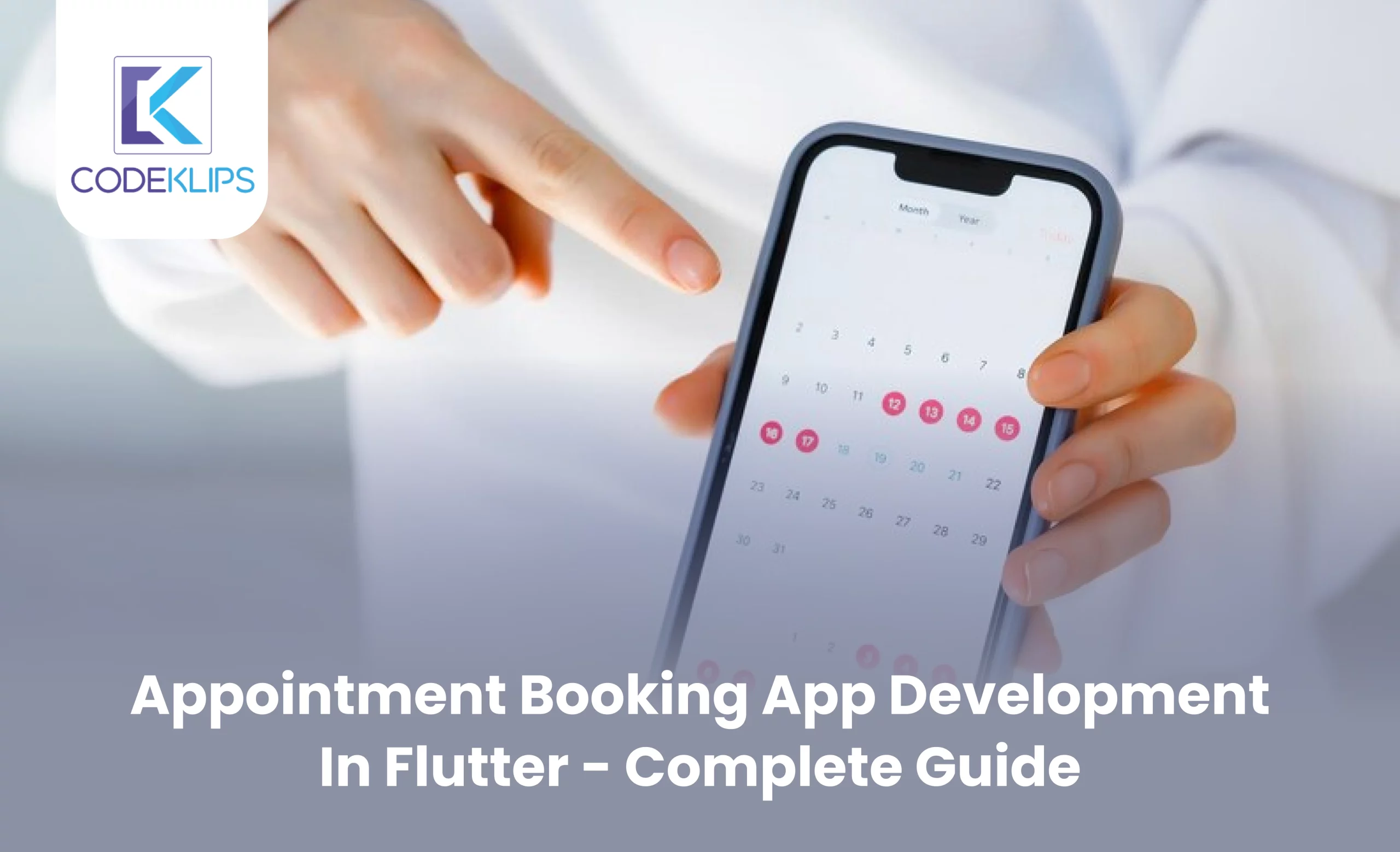25 February 2025
Published by

In today’s fast-paced world, businesses that rely on appointments, such as clinics, salons, consultants, and service providers, need an efficient way to manage bookings. An appointment booking app helps businesses streamline their scheduling process, reducing missed appointments and improving customer satisfaction.
This guide will walk you through the appointment booking app development process using Flutter, a powerful framework for building cross-platform applications. Whether you’re a booking-related business owner or a startup owner, this guide will help you understand how to develop an efficient appointment scheduling app that meets your business needs.
Flutter has become a top choice for Flutter app development because of its many advantages:
According to Statista, Flutter is one of the most preferred frameworks by developers, with over 40% of developers using it globally.
An efficient appointment scheduling app should include the following features:
Allow users to sign up using email, phone, or social media.
Users and service providers should have separate profiles to manage their appointments, schedules, and preferences.
Integrate Google Calendar or Apple Calendar to allow easy scheduling and reminders.
Secure payment gateways like Stripe, PayPal, or Razorpay should be integrated for easy transactions.
Push notifications, SMS, or emails for appointment confirmations and reminders.
Business owners can manage bookings, view reports, and analyze customer trends.
Allow users to rate and review services, improving customer trust.
If targeting a global audience, multi-language and currency support is essential.
An advanced AI-powered scheduling system can suggest the best time slots based on availability.
Manual booking processes consume time and lead to human errors. With an automated appointment scheduling app, businesses can eliminate inefficiencies and reduce double-booking issues.
Customers appreciate the ease of booking appointments at their convenience. A scheduling app ensures a hassle-free booking process, reducing the risk of miscommunication.
An appointment booking app enables businesses to increase their revenue by offering seamless booking experiences, automated follow-ups, and multiple payment options.
Automated reminders via push notifications, SMS, or emails help in reducing missed appointments, ensuring better business performance.
With a Flutter appointment scheduling app, businesses can track appointment trends, customer preferences, and revenue statistics, enabling data-driven decision-making.
Before starting development, list out the features and requirements of the appointment booking app. Consider:
For the backend, you can choose:
For database:
For frontend:
Create a simple and attractive UI using Flutter widgets like:
Using Flutter, create different screens:
The backend should handle:
Integrate payment gateways such as:
Use Firebase Cloud Messaging (FCM) for push notifications.
Test the app for bugs, performance, and security vulnerabilities.
Publish your app on Google Play Store and Apple App Store.
The cost of appointment booking app development depends on various factors:
Also Read – Future of Healthcare: Mobile Health App Development
Developing an appointment scheduling app using Flutter is an excellent choice for businesses looking to improve their booking systems. A well-designed app can save time, reduce no-shows, and enhance customer satisfaction.
If you’re not a developer, consider hiring a Flutter app development company to build a custom appointment booking app for your business.
Need a fast, easy, and beautiful appointment booking app? CodeKlips is here to help! We specialize in Flutter app development to bring your ideas to life. Save time, boost bookings, and grow your business with a powerful app. Let’s build together!
Contact Us Today!
Start your appointment booking app development journey today and take your business to the next level!